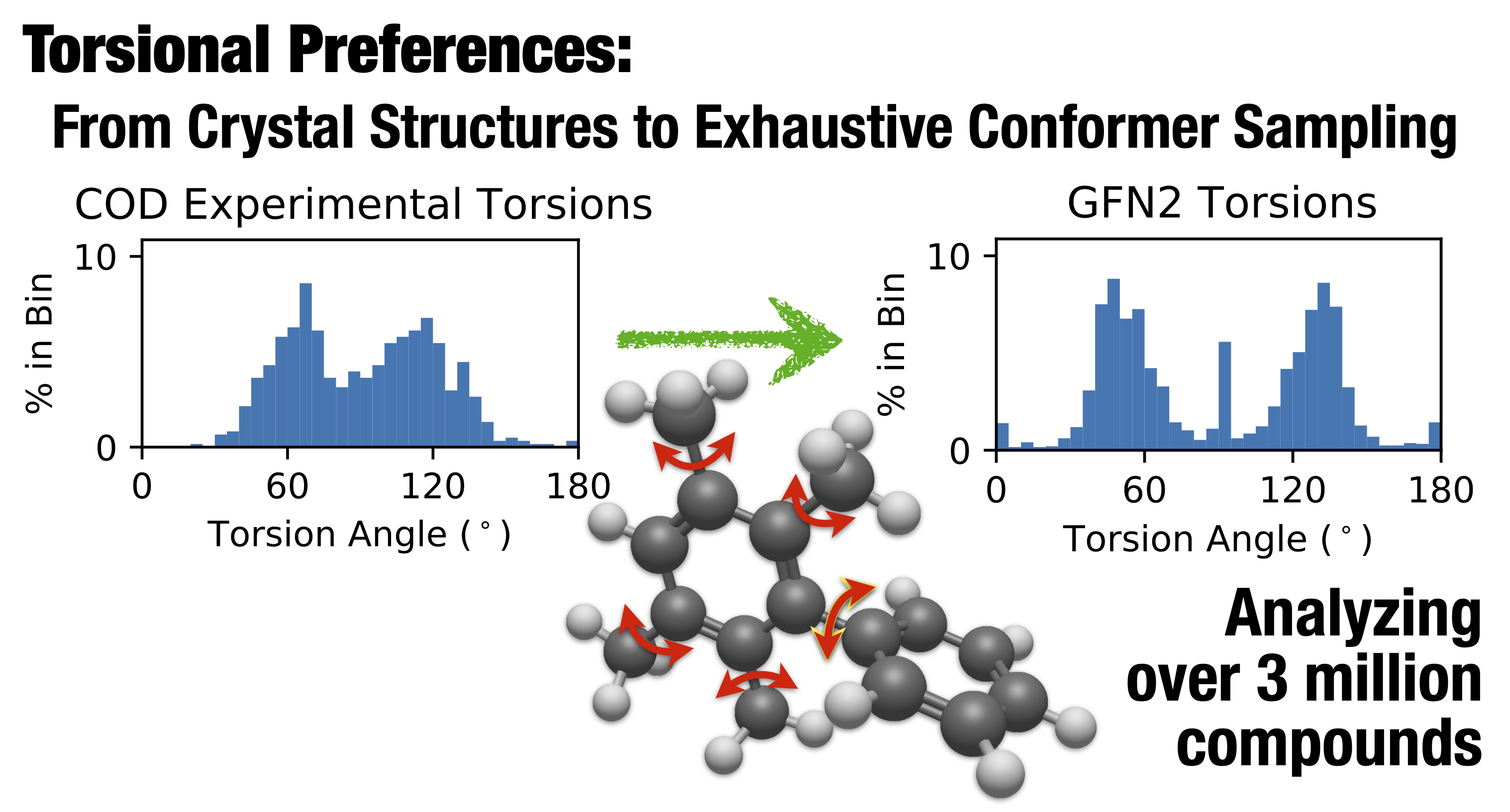Systematic Comparison of Experimental Crystallographic Geometries and Gas-Phase Computed Conformers for Torsion Preferences
Dakota Folmsbee, David Koes, Geoffrey Hutchison. “Systematic Comparison of Experimental Crystallographic Geometries and Gas-Phase Computed Conformers for Torsion Preferences” J. Chem. Inf. Model. 2023 Online
 We have performed exhaustive torsion sampling on more than 3 million compounds using the GFN2 method and performed a comparison of experimental crystallographic and gas-phase conformers. Many conformer sampling methods derive torsional angle distributions from experimental crystallographic data, limiting the torsion preferences to molecules that must be stable, synthetically accessible, and able to be crystallized. In this work, we evaluate the differences in torsional preferences of experimental crystallographic geometries and gas-phase computed conformers from a broad selection of compounds to determine whether torsional angle distributions obtained from semi-empirical methods are suitable for conformer sampling. We find that differences in torsion preferences can be mostly attributed to a lack of available experimental crystallographic data, with some deviations derived from gas-phase geometry differences. GFN2 demonstrates the ability to provide accurate and reliable torsional preferences that can provide a basis for new methods free from limitations of experimental data collection. We provide Gaussian-based fits and sampling distributions suitable for torsion sampling, and propose an alternative to ETKDG using quantum-torsion derived distance geometry methods (QTDG).
We have performed exhaustive torsion sampling on more than 3 million compounds using the GFN2 method and performed a comparison of experimental crystallographic and gas-phase conformers. Many conformer sampling methods derive torsional angle distributions from experimental crystallographic data, limiting the torsion preferences to molecules that must be stable, synthetically accessible, and able to be crystallized. In this work, we evaluate the differences in torsional preferences of experimental crystallographic geometries and gas-phase computed conformers from a broad selection of compounds to determine whether torsional angle distributions obtained from semi-empirical methods are suitable for conformer sampling. We find that differences in torsion preferences can be mostly attributed to a lack of available experimental crystallographic data, with some deviations derived from gas-phase geometry differences. GFN2 demonstrates the ability to provide accurate and reliable torsional preferences that can provide a basis for new methods free from limitations of experimental data collection. We provide Gaussian-based fits and sampling distributions suitable for torsion sampling, and propose an alternative to ETKDG using quantum-torsion derived distance geometry methods (QTDG).